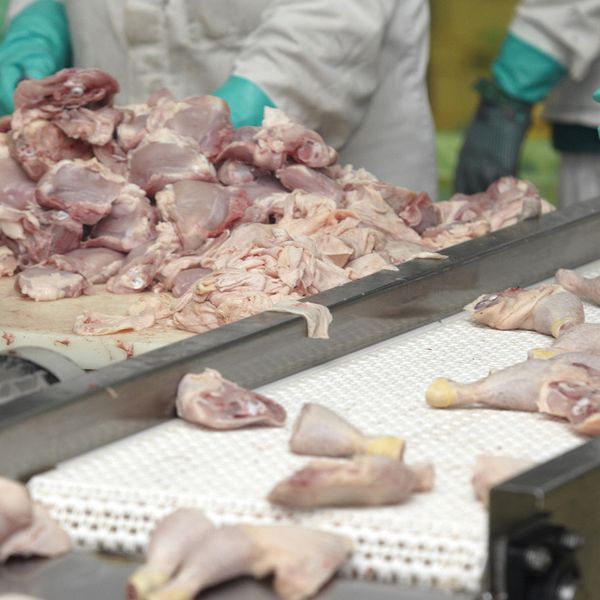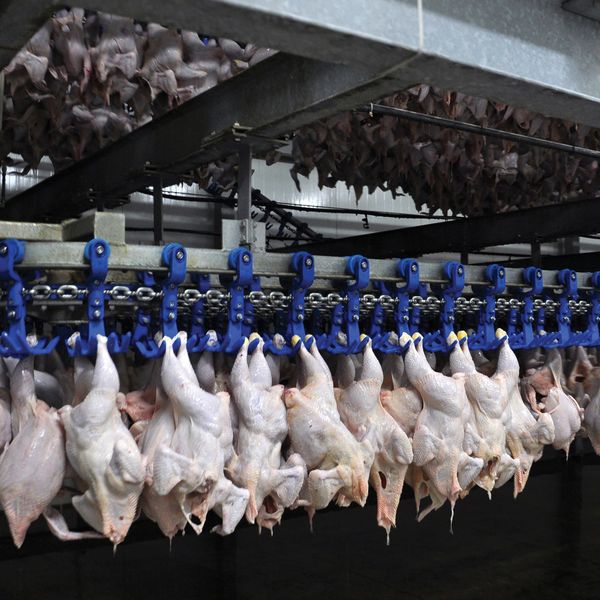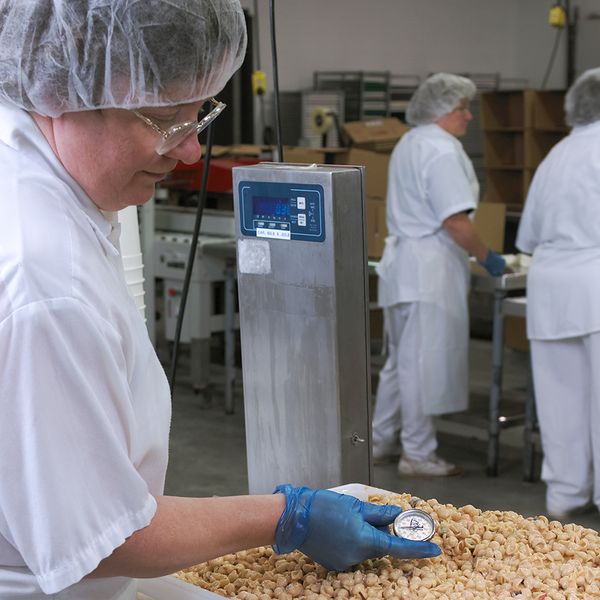Food inspectors are asked to call OSHA when hazards are found
On August 1, 2022, the Occupational Safety and Health Administration (OSHA) and the Food Safety and Inspection Service (FSIS) teamed up to sign a Memorandum of Understanding (MOU) authorizing food inspectors at FSIS-regulated establishments to call OSHA when serious hazards are identified at facilities during inspections. Employers should understand this new reporting authority and work with food inspectors to identify any existing health and safety gaps so solutions can be implemented. This MOU will be in effect for five years and will add the benefit of OSHA and FSIS sharing vital health and safety data, methods for monitoring and assessing hazards, and workplace protocols as well as coordinating safety training for workers.
FSIS manages and enforces several Federal Acts with a mission of protecting the public from unsafe meat, poultry, and egg products. FSIS must maintain an Occupational Health and Safety program that complies with the OSHA Safety and Health Act of 1970. To ensure health and safety compliance, FSIS is permitted to implement rules and regulations designed to ensure metal, poultry, and egg products capable of being consumed as human food is not contaminated or misrepresented when delivered for consumer use.
Though not authorized to abate hazards directly, FSIS has the same goal as OSHA — to ensure employees have safe, healthy, and sanitary workplaces. They accomplish this using inspections, engineering and administrative controls, personal protective equipment (PPE), housekeeping protocols, and removing employees from unsafe conditions if necessary.
The MOU does not modify FSIS’ inspection and reporting procedure but does encourage reporting to OSHA when serious hazards are identified. FSIS employees and regulated establishment employees must report unsafe or unsanitary conditions, verbally or in writing. Likewise, supervisors must respond to issues brought forward so remedies can be implemented as soon as practical.
Cohesive training and resources
OSHA and FSIS will work together to coordinate efforts that will provide all FSIS workers in regulated establishments with training on workplace health and safety hazards and controls. OSHA will continue to share health and safety resources and materials appropriate for FSIS establishments and workers to ensure workplace safety.
To facilitate effective reporting, FSIS personnel will be trained on 20 serious work-related hazards that may be found in FSIS-regulated meat, poultry, and egg product establishments. These include but are not limited to:
- No emergency evacuation plans, blocked means of egress or exits, and unmarked exits.
- Lack of machine guards.
- Ineffective or non-existent hazardous energy control of equipment, especially during maintenance activities.
- Broken or missing guardrails.
- Falling object hazards and fall protection.
- Improper walking or working surfaces (open holes in flooring, slip and fall hazards, etc.) Lack of PPE.
- Releases or spills of toxic chemicals.
- Exposure to hazardous substances (respiratory hazards, skin or eye irritants, etc.) • Exposure to hazardous chemicals not included in the organization’s hazardous communication program.
- Exposure to harmful substances (asbestos, lead, carbon monoxide, dusts, etc.)
- Lack of a confined space entry program.
- Ineffective or non-existent hearing conservation program.
- Exposure to sharp objects that could lead to lacerations or amputations.
- Unabated ergonomics issues (repetitive motions, lifting, bending, etc.)
- Exposure to infection diseases (COVID-19, monkeypox, etc.) or bloodborne pathogens.
- Lack of attention to sanitation (timely restroom breaks, clean facilities, access to hand washing resources, etc.)
Additionally, OSHA will be providing a poster to each FSIS-regulated establishment outlining the proper procedure for reporting illnesses and injuries.
An extra set of eyes
Workers will be able to report serious workplace hazards directly to OSHA, who will work with FSIS to take appropriate action. When FSIS identifies serious safety or health concerns during inspections, they will notify OSHA. They will also notify OSHA when they are aware of or suspect infectious disease outbreaks, human or animal, at FSIS establishments that could affect worker or public health and safety.
OSHA will share appropriate and applicable injury and illness data with FSIS-regulated establishments to help identify training or procedural gaps that must be remedied. Working together, OSHA and FSIS will also identify and develop methods and technique for monitoring, handling, and storing chemicals to ensure worker safety.
Key to remember
OSHA and FSIS are joining forces to ensure safe and healthy workplaces FSIS and food establishment employees. Their coordinated efforts will synergize incident reporting, safety training, and will promote information sharing of important health and safety data, methods for monitoring and assessing hazards, and workplace protocols.
























































